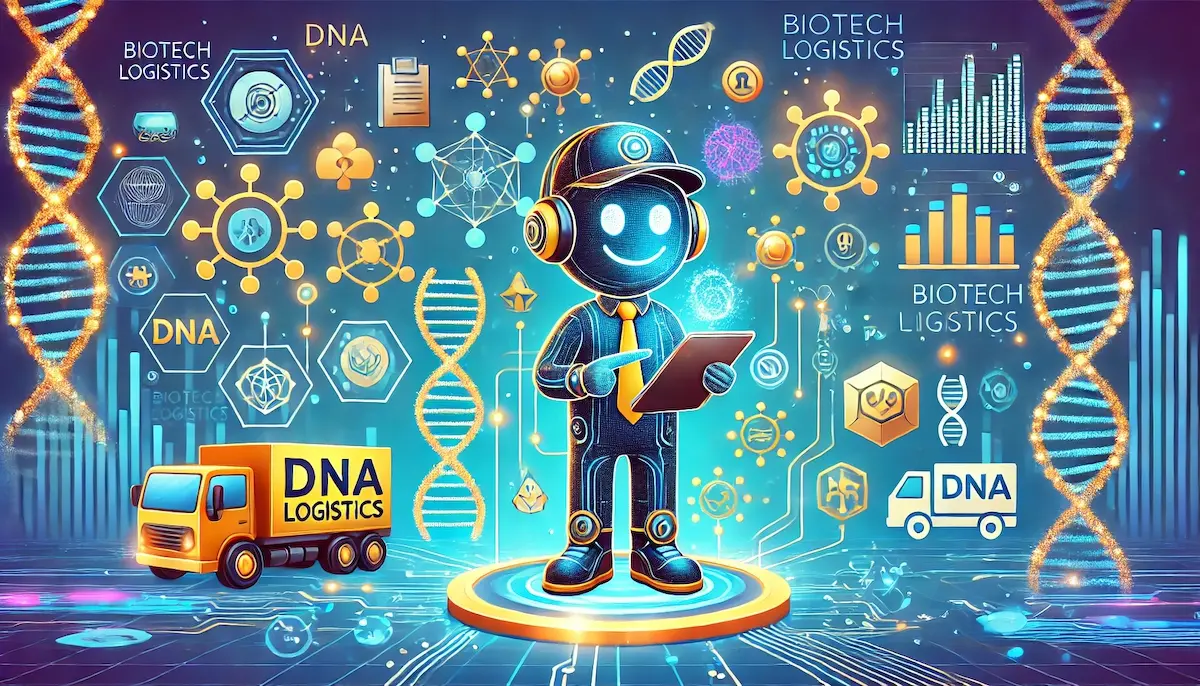Biotech logistics plays a crucial role in the biotechnology industry, ensuring that sensitive biological products and materials are transported, stored, and handled under optimal conditions. Given the highly regulated nature of the biotech sector and the delicate nature of the products involved, logistics in this field requires specialized knowledge, equipment, and processes.
Understanding Biotech Logistics
Biotech logistics refers to the management of the supply chain for biotechnology products, including pharmaceuticals, medical devices, biological materials (such as cells, tissues, and blood), and other life sciences products. These items are often temperature-sensitive, have a short shelf life, and require strict regulatory compliance during transportation and storage.
The Importance of Biotech Logistics
Effective biotech logistics is vital for several reasons:
- Product Integrity: Ensuring that biotech products are transported and stored under the correct conditions is essential to maintain their efficacy and safety.
- Regulatory Compliance: The biotechnology industry is heavily regulated, with strict guidelines on the handling and transportation of biological materials. Adhering to these regulations is crucial to avoid legal and financial penalties.
- Patient Safety: Many biotech products, such as vaccines, drugs, and medical devices, directly impact patient health. Proper logistics ensures these products reach patients in optimal condition.
- Global Supply Chains: The biotech industry operates on a global scale, with materials and products often crossing international borders. Efficient logistics ensures timely delivery and minimizes the risk of delays or damage.
- Cold Chain Management: Many biotech products require cold chain logistics, which involves maintaining a specific temperature range throughout the supply chain to preserve product quality.
Key Components of Biotech Logistics
- Cold Chain Logistics: Managing temperature-controlled supply chains for products that must be kept within a specific temperature range (e.g., -80°C for certain vaccines). This includes refrigerated transportation, cold storage, and real-time temperature monitoring.
- Regulatory Compliance: Adhering to regulations set by agencies like the FDA, EMA, and WHO, which govern the transportation, storage, and handling of biotech products.
- Customs and Documentation: Handling the complex paperwork and customs requirements for international shipments, including documentation for product safety, origin, and compliance.
- Specialized Packaging: Using packaging materials and methods designed to protect biotech products during transit, including insulated containers, dry ice, and phase change materials.
- Inventory Management: Efficiently managing inventory levels to ensure timely availability of products while minimizing waste, particularly for products with short shelf lives.
- Real-Time Tracking and Monitoring: Implementing advanced tracking systems to monitor the location and condition of shipments in real time, ensuring immediate response to any issues.
- Risk Management: Identifying and mitigating risks associated with the transportation of sensitive biotech products, such as temperature excursions, delays, and damage during transit.
Challenges in Biotech Logistics
- Temperature Control: Maintaining the required temperature range throughout the supply chain is challenging, especially for long-distance or international shipments.
- Regulatory Complexity: Navigating the complex and varied regulations across different countries and regions can be difficult and requires specialized knowledge.
- Product Sensitivity: Many biotech products are highly sensitive to environmental conditions, making them more susceptible to damage or degradation during transit.
- Supply Chain Disruptions: Factors such as natural disasters, geopolitical events, and pandemics can disrupt supply chains, leading to delays and potential product losses.
- Cost Management: The specialized equipment and processes required for biotech logistics can be expensive, necessitating careful cost management to maintain profitability.
Best Practices for Effective Biotech Logistics
- Implement Robust Cold Chain Solutions: Invest in advanced cold chain technologies and infrastructure to ensure that temperature-sensitive products are consistently maintained within their required temperature ranges.
- Ensure Regulatory Compliance: Stay up-to-date with the latest regulations and work closely with regulatory experts to ensure all logistics processes meet compliance requirements.
- Use Advanced Tracking and Monitoring: Utilize GPS tracking, RFID tags, and IoT-enabled sensors to monitor shipments in real time and quickly address any issues that arise.
- Collaborate with Experienced Partners: Partner with logistics providers that specialize in biotech and life sciences, as they will have the expertise and infrastructure needed to handle these complex logistics challenges.
- Develop Contingency Plans: Prepare for potential disruptions by developing contingency plans, including alternative transportation routes, backup suppliers, and emergency response protocols.
In conclusion, biotech logistics is a specialized and critical aspect of the biotechnology industry. By following best practices and staying ahead of the challenges, companies can ensure the safe and efficient delivery of biotech products, ultimately supporting patient safety and advancing scientific progress.
Blockfine thanks you for reading and hopes you found this article helpful.
